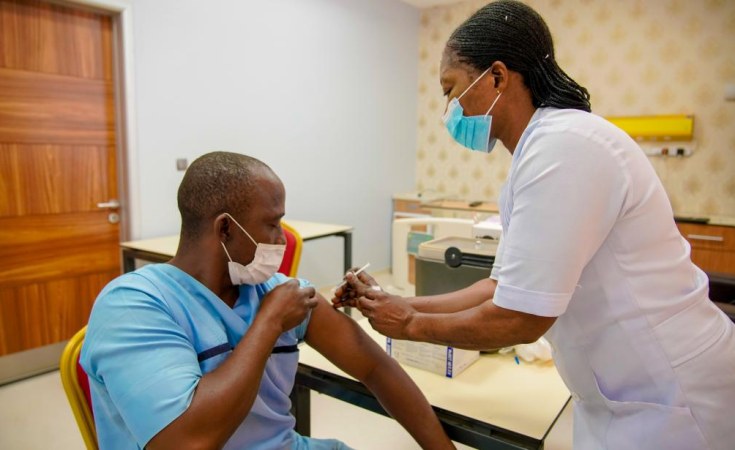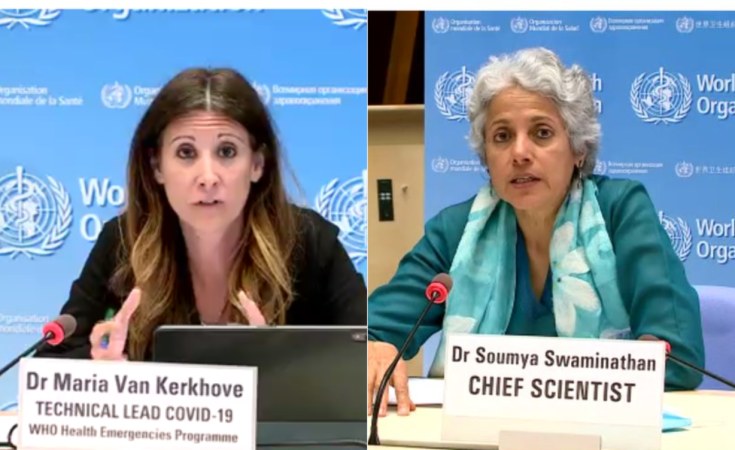Washington, DC — African deaths from Covid19 have increased 80 percent in four weeks, driven by the Delta variant, World Health Organization Director-General Tedros Adhanom Ghebreyesus announced today from Geneva.
"All regions are at risk," he said, "but none more so than Africa...Many African countries have prepared well to roll out vaccines, but the vaccines have not arrived."
Less than two percent of all Covid vaccine doses have been administered across Africa's 55 countries. Only 1.5 percent of Africans are fully vaccinated.
The UN global health body announced two new steps today to address the growing pandemic emergency crisis.
1. The Access to COVID-19 Tools Accelerator is launching Radar - the Rapid ACT-Accelerator Delta Response, which is issuing an urgent call for U.S.$7.7 billion for tests, treatments and vaccines.
2. A collaboration has been signed by a group of partners who will speed the production of Covid vaccines in Africa,initially by a South Africa-based facility.
The partners are WHO; the Medicines Patent Pool; Afrigen Biologics; the Biologicals and Vaccines Institute of Southern Africa; the South African Medical Research Council and the Africa Centres for Disease Control and Prevention (Africa CDC) based at the Africa Union headquarters in Addis Ababa, Ethiopia.
No country can vaccinate its way out of Covid - world must stop the variants.
At today's briefing, WHO advisor Dr. Bruce Aylward, a Canadian epidemiologist who has experience in polio elimination and controlling Ebola, asked, "How do we approach this as a world?" With the much more infectious Delta variant spreading, he said, "We can't vaccinate our way out of this in one country."
WHO experts,along with other infectious disease doctors around the world, have long insisted that what has come to be called #VaccineEquity is not charity. Sharing vaccines with the world's most vulnerable people, including front-line health-care workers, is the only way to reduce the likelihood of new mutations that make Covid even more dangerous, said American corona virus researcher Dr. Maria Van Kerkhove, who heads WHO's Covid technical response.
There is enough vaccine in the world, and there is enough money, Alyward said. But because neither vaccine-producing countries or pharmaceutical companies are sharing sufficiently - what he called "a stain on our consciences" - Africa must be supported to control its own supply chain of vaccines, tests and treatments.

The reasons African countries have been shut out of the vaccine marketplace are numerous and complex. But one reason is that the world's wealthiest countries rushed to lock in their own supplies.
For example, last year Pfizer's German partner BioNTech received $445 million from the government in Berlin to develop and produce the vaccine, and the United States committed nearly $200 billion to buy the vaccines produced, with an option to buy more.
African volunteers tested Covid vaccines on behalf of the world, but their risks haven't been rewarded with access to the final products.
Two days ago, Bloomberg reported that Pfizer expects Covid vaccine sales to produce revenues of $33.5 billion this year, an upwards adjustment from forecasts last month. Part of that financial success is due to South African volunteers who participated in clinical trials that helped determine that the Pfizer BioNTech vaccine was safe and effective.
And in June a new trial with 14,000 participants, due to begin in South Africa and seven other southern African countries, was stalled, when neither Pfizer nor Moderna would provide the expected vaccines to use. The testing was designed to yield answers in as little as 12 weeks on whether the mRNA vaccines will protect people living with HIV from the Beta variant first identified in South Africa. The U.S. National lnstitutes of Health agreed to pay for the study. African clinicians and advocates suspect corporate business reasons for the manufacturers' stance and wrote to Dr. Anthony Fauci to protest. HIV/Aids activists had hoped that the trial volunteers, who face higher than normal risks from Covid, would have a chance to be vaccinated earlier than they would otherwise, given vaccine shortages.
The Delta variant has now been detected in at least 132 countries. The speed of its spread and the lack of effective government actions to control it are causing physicians who study the virus to fear the emergence of a variant that will evade all existing vaccines - with the potential to become a real-life doomsday virus.
But Tedros says the world must not despair. It should act. "We have all the tools we need: we can prevent this disease, we can test for it, and we can treat it" he said. "The pandemic will end when the world chooses to end it. It's in our hands."


